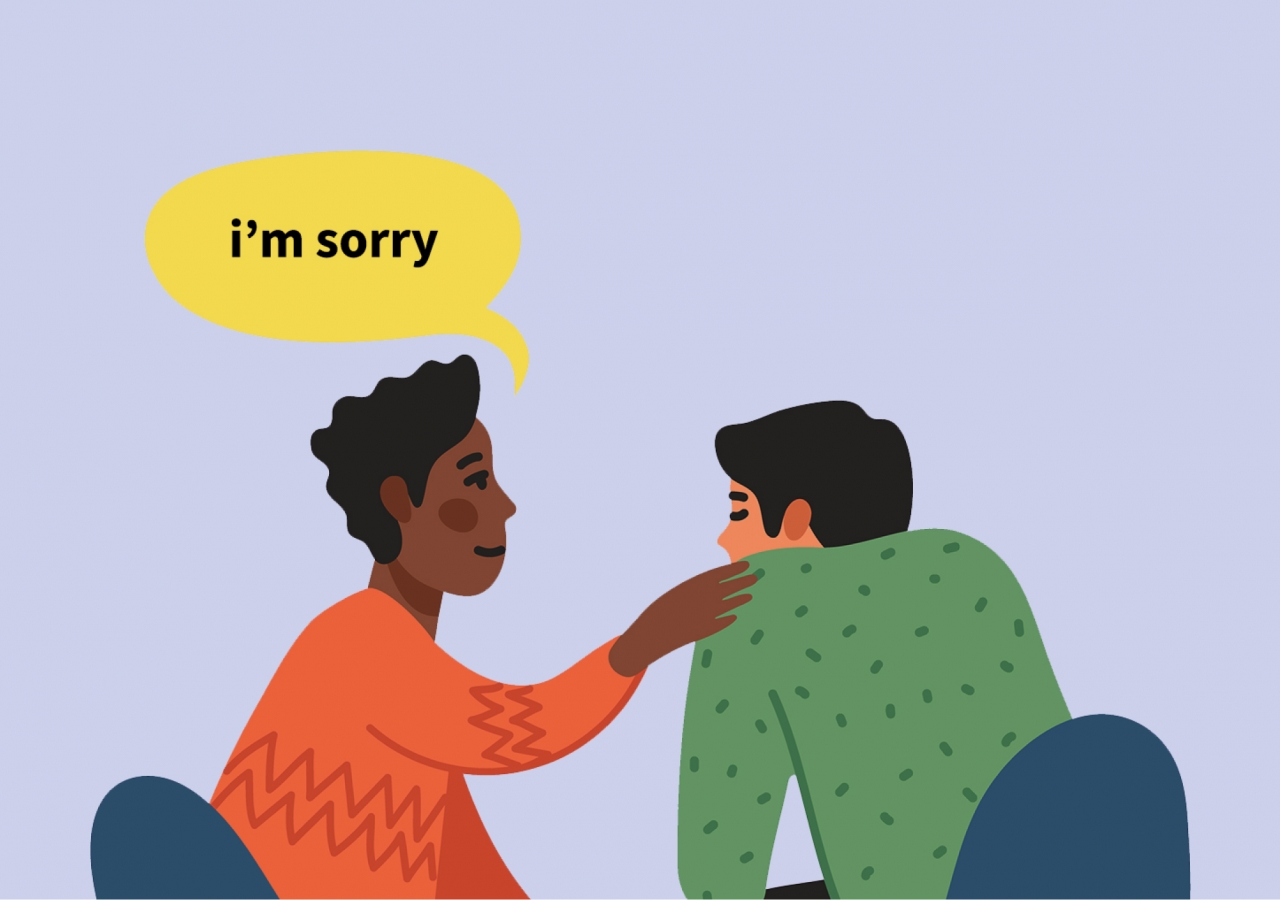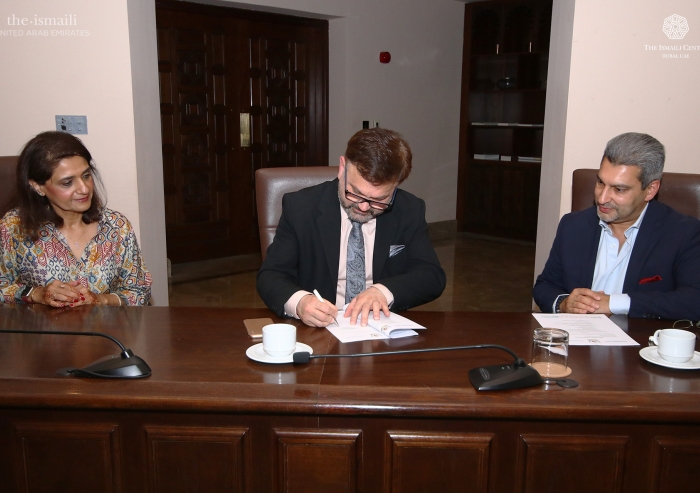Sorry is a simple word that we begin to use in our earliest years, yet it has the power to change any situation, if meant sincerely. It enables a shift in the perception of ourselves and others, evolves our thinking and relationships, and broadens our horizons through expanded viewpoints.
An apology is defined as a regretful acknowledgement of a wrongdoing, or an oversight towards another; as well as an act of surrender by which to avoid conflict. Often symbolic of the commitment to move forward, apologies also serve to achieve closure of hurtful and harmful situations.
However, an apology is often misunderstood to be a one sided momentary event, rather than an inclusive process. The shape of an apology is sculpted by the introspection the apologiser undergoes, while its acceptance is chiselled by the receiver's expectation, as experienced by Hamida and Salina.
Hamida lay on her bed for hours staring at the ceiling with intermittent tears rolling down her face. She continued hearing Salina’s hurtful words in her mind: ‘How could Salina think that about me? I am not a horrible human being. We have been friends forever; she knows me better than that’ as the tears continued to roll down her cheeks once more.
Salina sat silently on the living room sofa fuming with anger and hurt as she continued to think about Hamida’s painful words. On the other hand, Hamida was so stressed, she had been lashing out at everyone in her space for weeks; however, when this happened with grandma, Salina felt she needed to bring this to Hamida’s attention: ‘I am her best friend, and we always serve as a mirror for each other,’ she thought to herself.
Salina's mother finally approached her daughter and asked what the matter was. Salina relays the story to her mum: “All I said was ‘Hamida, please look at yourself – you are reacting horribly towards all of us; you even snapped at your grandma, which you never do. Please let’s have some fun and ease this tension you are going through.’ Mum, she did not even want to go to Rahim’s birthday party this year. Can you believe it? She is the first one to pipe up about birthday parties, especially Rahim’s. She just cannot seem to find her emotional balance during this university application process”.
Salina's mum asked “Is it possible that her stress caused her to misunderstand what you were saying to her? Could she have interpreted your words in the wrong way?” Salina paused and replied, “Perhaps she did, because she kept saying ‘I am not a horrible person, how can you say that to me? I am not a horrible person.’ Right then, Salina stood up, gave her mum a kiss and ran over to Hamida’s house. “Hamida, I am sorry to have upset you. That was not my intention. I am worried about you, as are your mum and dad. Please can we talk about this and clear the air?” By the time their conversation ended, they were both laughing and were back to being best friends.
In this case, Salina's intention was to diffuse Hamida’s stress and clear any misunderstandings standing in the way of their friendship, therefore, Salina assumed full responsibility for the situation. However in cases where the apologiser's motive or perception does not match the expectation of the receiver, both parties need to be flexible in order to give the process full effect.
While the process of apologising may give rise to a range of emotional consequences such as anger, insecurity, and low self-esteem, it also lends to personal growth at many levels. Human nature is generally inclined towards forgiveness upon receipt of an apology and ceases to perceive the apologiser as a personal threat, relieving stress. Further, the hurt party, in extending empathy towards the apologiser, can lead to the re-establishment of trust and mutual affinity within a relationship in a peaceful manner.
An apology is a huge step forward for one's peace of mind, not because one is right and the other is wrong, but because we want to live in peace and harmony with each other.








